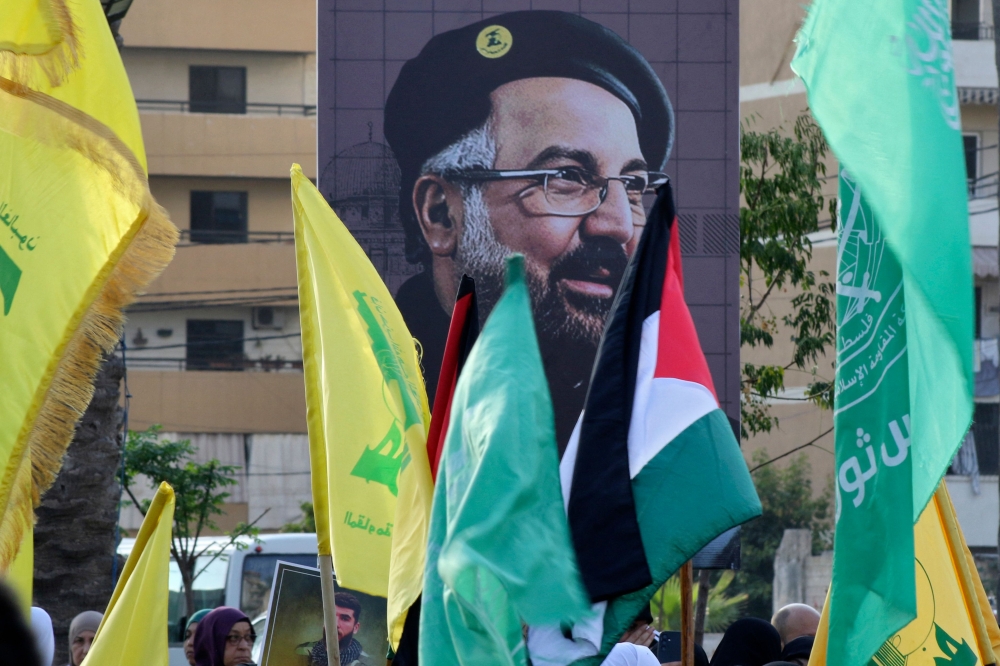BEIRUT, Aug 3 — Fuad Shukr, the top Hezbollah commander killed by Israel on Tuesday, was a founding member of the Iran-backed group who helped oversee its expansion from a shadowy Lebanese civil war militia to a major force in the Middle East.
His killing was the heaviest blow to Hezbollah’s command since the 2008 assassination of Imad Mughniyeh, underlining the gravity of this week’s escalation in the conflict, which has been rumbling across region since the Gaza war erupted.
While the assassination of Hamas leader Ismail Haniyeh in Tehran marked a major political setback to the Palestinian Islamist group and its Iran-backed allies, Shukr’s killing has stripped their camp of one of its top military leaders.
Also known as Al-Hajj Mohsin, Shukr was part of a generation of Lebanese Shiah Muslims who mobilised in 1982 to fight Israeli troops who had invaded Lebanon that year. They were driven by ideological inspiration from Iran’s 1979 Islamic Revolution.
He was a close associate of Mughniyeh, a shadowy figure remembered in Hezbollah as a legendary commander but by the United States as a terrorist, accused of plotting attacks including the 1983 bombing of the US Marine barracks in Beirut.
The United States says Shukr played a central role in that bombing, which killed 241 US military personnel. In 2017, it put a bounty of up to US$5 million on Shukr’s head, according to the US government’s Rewards for Justice website.
Israel said Shukr was responsible for the killing of numerous Israelis and foreign nationals over the years.

Retaliatory strike
Israel killed Shukr, 61, in retaliation for a rocket attack on July 27 that killed 12 children and teenagers in a Druze village in the Israeli-occupied Golan Heights.
Hezbollah, which has been trading fire with Israel since October 8, denied any role in the attack.
As has been the case with other assassinated Hebollah leaders, few outside of the organisation knew who Shukr was until his death.
Speaking via video link at his funeral on Thursday, Hezbollah chief Hassan Nasrallah said Shukr had been a central figure in Hezbollah since its founding.
“The most important capabilities that the resistance enjoys today were built by Sayyed Fuad,” Nasrallah said, describing him as a mentor to Hezbollah fighters and commanders and in charge of Hezbollah operations against Israel since October 8.
“For 10 months, we were in contact daily, hourly,” Nasrallah said.
In 1982, Shukr helped to plan a suicide car bomb attack on Israeli troops at their barracks in the southern Lebanese city of Tyre, along with Mughniyeh and others, according to details of his life published by the pro-Hezbollah al-Akhbar newspaper.
Photos of Shukr published by the paper on Thursday showed him in fatigues standing between Mughniyeh and Mustafa Badreddine, another Hezbollah veteran commander who was killed in Syria in 2016.
Al-Akhbar also published a photo of Shukr alongside Qassem Soleimani, the commander of the Iranian Revolutionary Guards Quds Force, who was killed in a US drone strike in Baghdad in 2020.
As a top Hezbollah commander from 1985 until the mid-1990s Shukr oversaw the evolution of Hezbollah attacks from suicide bombings to operations that included storming Israeli positions, while building Hezbollah’s arsenal with the addition of weapons such as anti-tank missiles, al-Akhbar reported.
He assumed many of Mughniyeh’s responsibilities after Mughniyeh was killed, sources familiar with Shukr’s role said. His roles included acting as military adviser to Nasrallah.
The Israeli military said Shukr was responsible for the majority of Hezbollah’s most advanced weaponry, including precision-guided missiles, cruise missiles, anti-ship missiles, long-range rockets and drones.
Announcing the bounty on his head in 2017, the US Rewards for Justice programme said he played a key role in Hezbollah’s military operations in Syria, where the group deployed fighters in support of President Bashar al-Assad in the early years of the Syrian civil war.
Hezbollah at the time dismissed the accusations against Shukr and another Hezbollah operative for whom a bounty was offered, Talal Hamiyah, saying they were “rejected and void”.
Referring to the bombing of the US Marine Barracks and other attacks on Western interests in Lebanon in the 1980s, Nasrallah said in an interview with an Arabic broadcaster in 2022 that they were carried out by small groups not linked to Hezbollah. — Reuters






















